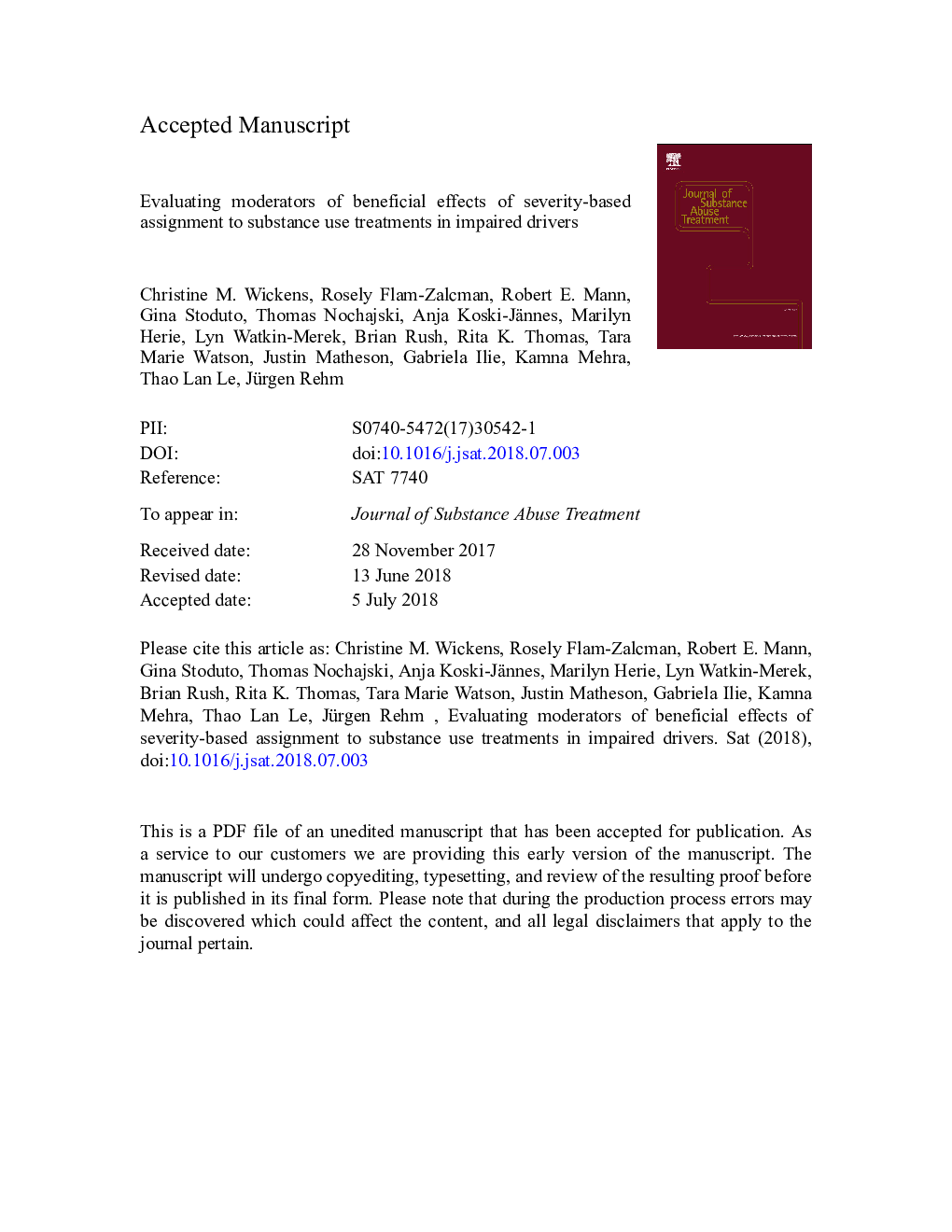| Article ID | Journal | Published Year | Pages | File Type |
|---|---|---|---|---|
| 6801356 | Journal of Substance Abuse Treatment | 2018 | 36 Pages |
Abstract
Remedial programs for impaired driving offenders have proved valuable in reducing subsequent alcohol and other drug use and preventing recidivism in this population. Many of these programs are based on a severity-based assignment scheme, where individuals assessed to have greater problems or be at higher risk are assigned to longer, more intensive interventions. Recent research, using regression discontinuity analyses, provided support for severity-based assignment schemes in demonstrating that those with higher problem or risk levels assigned to longer and more intensive programming showed a significant reduction in drinking days over a follow-up interval, attributable to program assignment. Regression discontinuity analyses can also be used to assess moderators of this assignment benefit. We report an assessment of the impact of eight potential moderators of assignment benefit, derived from a factor analysis of the Research on Addictions Self-Inventory screening instrument. Five of the eight factors were found to moderate the assignment benefit: Negative Affect, Sensation Seeking, High Risk Lifestyle, Alcohol Problems, and Family History. The significance of these results for developing more effective program assignment procedures is discussed.
Keywords
Related Topics
Life Sciences
Neuroscience
Biological Psychiatry
Authors
Christine M. Wickens, Rosely Flam-Zalcman, Robert E. Mann, Gina Stoduto, Thomas Nochajski, Anja Koski-Jännes, Marilyn Herie, Lyn Watkin-Merek, Brian Rush, Rita K. Thomas, Susan LaFontaine, Tara Marie Watson, Justin Matheson, Gabriela Ilie, Kamna Mehra,
